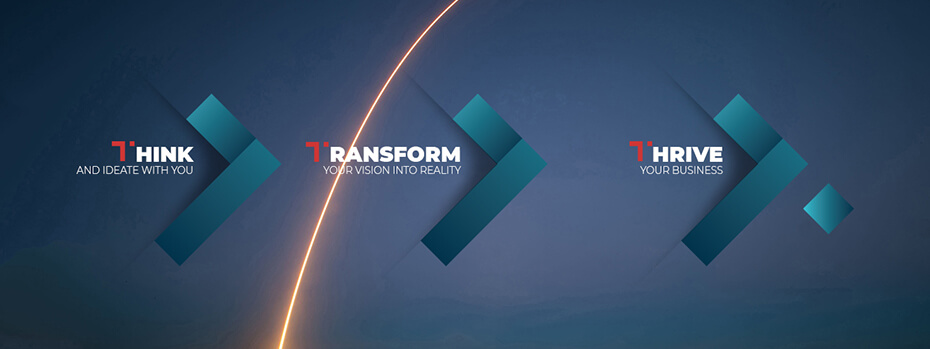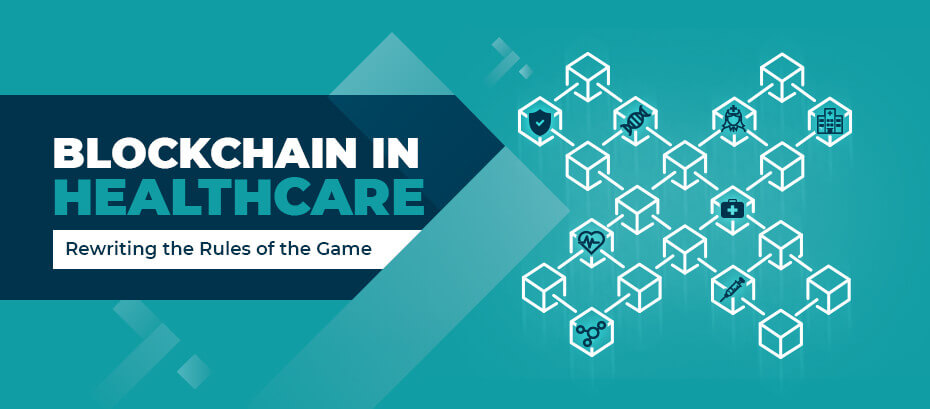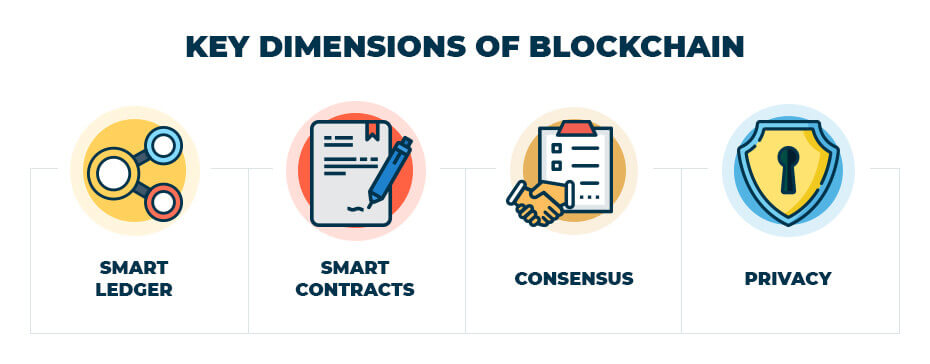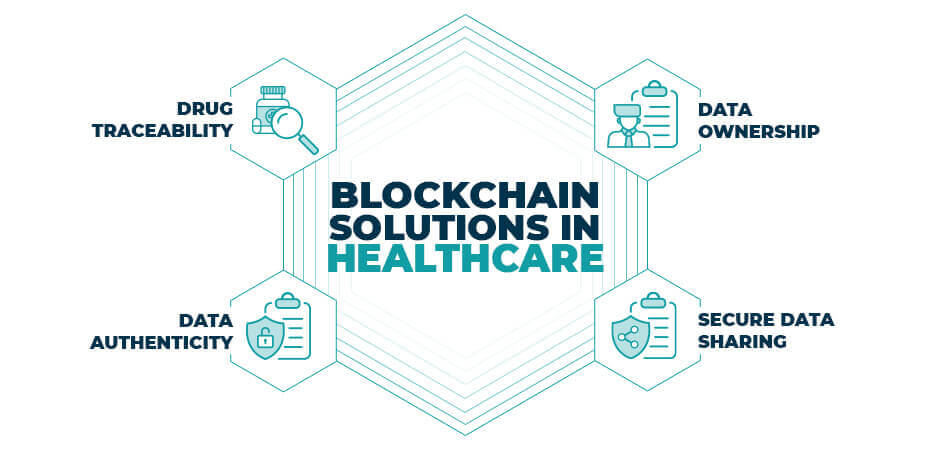


When was the last time you were popping pills? No one wants to fall sick, but we all have at some point of time! What if you realize the medicines you are taking are adulterated?
According to the Health Research Funding Organisation, 10-30% of drugs circulating across the globe are counterfeit and their annual worth is a whopping $200 billion and growing. Scary, isn’t! But much to your relief, blockchain hits the healthcare market as a savior technology.
If blockchain technology jump-starts your mind to think about banking or financial sector, it’s obvious. Although, these industries were the trailblazers in embracing blockchain, healthcare has also joined the bandwagon lately.

Many healthcare organizations seem to be setting the pace on blockchain adoption because apart from the first mover advantage, they are also cognizant of the new efficiencies this technology brings.
Unlocking the massive potential of blockchain for healthcare
How blockchain addresses the complexities and deep-rooted issues of the healthcare market? Here are the key facets of blockchain development that render it appropriate to shape the future of healthcare:
Shared Ledger
It is an append-only distributed system of immutable record of peer-to-peer transactions or contracts shared across a business network. These records are maintained in a decentralized form as blocks in a digital ledger across different locations.
Unlike centralized ledgers, these ledgers are harder to attack because it is near impossible to attack all the distributed copies simultaneously.
Keen on increasing data flow and improving patient experience & outcome?
Advance your Blockchain initiatives with us!
Smart Contracts
A smart contract is a self-enforcing agreement or business terms, both embedded and executed in a transaction database. It comprises of a set of rules under which the network participants agree to interact with each other. These are efficient asset and access rights management tools that eliminate coordination costs of auditing and enforcement.
Consensus
Among the large number of participants across the business network, if anyone wants to add transactions to the blockchain, they must compete to solve a mathematical proof. Therefore, it becomes difficult for attackers to maliciously add transactions to the network. All parties agree to the validity of a transaction and commit it to blockchain, hence the term “consensus.”
Privacy
To ensure privacy blockchain networks use established cryptographic techniques to securely store information. The network participants can access the required information by using keys and cryptographic signatures. Thus, transactions are secure, authenticated, and verifiable within a blockchain network.
In a nutshell, here are the four key dimensions of blockchain that make this technology best suited for healthcare.

How blockchain is disrupting healthcare for the better?
Although the use of blockchain in this industry is at a nascent stage, it has immense potential to help healthcare providers and payers alike. In addition to bridging conventional data silos and streamlining patient’s access to medical data, blockchain can protect data security and dramatically increase efficiencies.
This technology could also be a potential game-changer for your business as its intrinsic properties such as data security, authenticity and interoperability can help in tackling some of the major issues plaguing healthcare, including:
- Drug counterfeiting
- Barriers to patient data access
- Fraud in the clinical trial process
- Sharing information among the medical community
- Claim rejections due to outdated insurance status
Let’s dive deeper into some of the use cases for blockchain technology in healthcare and how it resolves some of the pressing issues plaguing healthcare.
Combating counterfeit drugs with drug traceability
Drug counterfeiting is one of the major issues that the pharmaceutical industry is facing and unfortunately data reveals that up to 30% of the drugs circulating around you are fake or adulterated. Due to the lack of harmony between the systems used to track drugs, stakeholders on the supply chain have no visibility of the origin and destination of the products they receive.
Blockchain is used to introduce anti-tampering capabilities in the manufacturing phase itself to ensure the medicines are genuine.
For example, by printing micro QR codes onto the drug and registering the micro QR codes on the blockchain, you can track the location of the medicine at any step in the supply chain. This ease of tracking by companies, in turn makes the supply chain impermeable to counterfeit drugs.
The blockchain also allows you to verify the authenticity of the drug and take action in case of any problem by identifying the exact location of your products.
Looking for a blockchain-based solution for your business?
We can ensure maximum outcome from your investment.
Streamlining patient data access with data ownership
As each patient is unique, there is no such thing as a common treatment strategy because what works for one patient might not work on the other because of inter-individual variability. Therefore, to adapt treatment plan or provide personalized care, it is essential to gain access to complete medical reports.
Currently, patients are not given complete access to their medical records so that they are not able to alter any information or delete them.
This notion of data ownership could be effectively addressed by blockchain by allowing healthcare providers to create a hash from each source of data (patient record) prior to redirecting them to the blockchain with patient’s public ID. Then, patient data access is managed through smart contracts.
With data ownership, patients will have complete control and visibility over the data coming from IoT-enabled wearable medical devices, that is, who is using and sharing the data through smart contracts.
Preventing fraud in clinical trials with data authenticity
Clinical trials are designed to test the tolerance and effectiveness of a product on a group of patients to validate or invalidate hypotheses. The outcomes of these trials are of utmost importance for the future of that product.
As pharmaceutical companies invest billions of dollars on these clinical trials, non-conclusive results have grave financial repercussions. Hence, fraud such as altering or modifying data is not uncommon, although the frequency is not easy to estimate.
Blockchain could play a powerful role in managing fraud in clinical trials by providing proof-of-existence for any document and allowing participants to verify the authenticity of the same.
Modifying existing information would require adding data in the form of transactions. And for that to take place the majority of the participants have to agree that it is valid and coherent with the original document. Hence, blockchain rules out modification of information with malicious intent.
Enhancing patient data management with secure data sharing
The health industry suffers from a lack of secure structure to share medical data and it poses a major hindrance to collaboration among the scientific community.
As medical records are kept in different locations, it becomes difficult for researchers to access the data that could contribute to scientific advances for rare diseases.
Even doctors face challenges in sharing sensitive medical data with their treatment partners. Similarly, patients also find it difficult to gather their own data from multiple providers for sending to their new specialist.
With blockchain, the treatment partners could be added to the network along with other providers so that everyone has access to the same information.
Lowering claim rejections due to outdated insurance status
The exchange of information in the healthcare industry is suffering due to complicated agreements between shareholders. This in turn leads to an inefficient outdated healthcare payment process, claim error and disputes resulting in millions of waste spend.
Now imagine if all the stakeholders in a business network have access to the same information! That means the information is always in sync and blockchain app development solutions can help you achieve that.
The shared ledger in blockchain facilitates the recording of transactions and allows end-to-end tracking of assets by all parties through near real-time monitoring.
As you think of potential use cases for blockchain technology in healthcare, these four key solutions that this technology brings are worth keeping in mind.

Are you ready for the future of healthcare?
What does tomorrow look like with blockchain? Well, BIS research justifies the hype around this technology with this forecast:
The global healthcare market will increase at a compound annual growth rate of 64%, reaching a value of $5.6 billion by 2025.
As HIPAA (Health Insurance Portability and Accountability Act of 1996) is not designed to address data security in the digital landscape, blockchain could be a potential panacea to healthcare security for the frustrated industry stakeholders.
It’s high time for your business to understand and explore this technology to ensure that you are not just ready for the changes to come but could become the positive change that could streamline patient care.
In conclusion, it’s vitally important that as a healthcare organization, you understand the significance of blockchain and its role in bringing new efficiencies and beneficial disruption to the ecosystem.
Is data security and interoperability on top of your mind?
We can help you with bespoke blockchain solution!



